
Systemic inflammation is the root of all chronic illness, but managing inflammation through diet can easily be done. Let's talk more about what inflammation is, how it can get away from us, and how managing inflammation through diet can reduce the burden in a major way.
Table of Contents
Acute vs. Chronic or Systemic Inflammation
Inflammation is actually an essential part of healing. Most everyone has experienced the body’s acute inflammatory response, the heat, redness, and swelling at the site of an injury or infection. It plays a crucial role in rallying the cellular troops of the immune system, using signaling chemicals to identify and attack any foreign invaders and get the body back to a state of health.
However, something so vital to your well-being is also one of your worst enemies. Due to a host of reasons, including gut damage from eating a poor diet, leading a sedentary lifestyle, chronic stress, and being exposed to environmental toxins; those signaling chemicals can get caught in the crossfire throwing their message out of whack, and causing systemic inflammation or cueing your immune cells to wrongly attack and damage your healthy cells.
Once this process starts, it can become persistent leading to a whole host of health problems, conditions, and disorders. The list of ailments caused by (or thought to be caused by) chronic inflammation is exhaustive and includes so many of our body systems. The big groups of inflammatory diseases include:
- Neurodegenerative disorders
- Cancers
- Autoimmune disorders
- Asthma and allergies
- Chronic digestive disorders
How Diet Contributes to Inflammation
The adage, “you are what you eat,” has been around for who knows how long, because it’s the truth. The health of your body depends on what you feed it, and in terms of inflammation, you either fuel it or you do your best to extinguish it. Now, I’m going to go out on a limb here and say, I think it’s a great thing that diet plays such a huge role, and that’s because we all have the power to take an active role in moderating inflammation.
That’s not to say learning to prepare, cook and eat new things is a treat for everyone. In fact, I’m sure if you look at a list of pro-inflammatory items, you would find a few of your all-time favorites. (Oh, hey there pancakes and pizza!) But, inflammatory ailments are painfully pernicious, and after seeing the dramatic healing that can happen with an anti-inflammatory diet, I vote that the change is worth it.
In a recent study that compared 44 epidemiological studies, amounting to 1,082,092 participants, researchers found that people with the highest diet-related inflammatory score had a cancer risk that was 58% greater than those with the lowest scores. (1) And, perhaps not surprisingly, the Standard American Diet filled with processed sugary foods, ranked the worst for inflammation.
Managing Inflammation Through Diet
Now let’s get down to brass tacks on how you can make the dietary changes needed to start managing systemic inflammation and regaining some control of your health.
I know dietary changes aren’t exactly easy. Eating is habitual and changing habits and routines definitely put most of us well out of our comfort zone. Change is scary, overwhelming, and often full of setbacks and downright failures. So, keeping your sights set on the goal, simplifying the steps you need to take, and being forgiving of yourself through any setbacks, can set you up for success. Let’s break it all down into easily digestible portions.
No Guts, No Glory
The brilliant microbiota is finally getting all the acclaim it deserves! Science is finding that gut microbes use ingested nutrients for fundamental biological processes, and their metabolic outputs have important implications for human health and disease. (2) You need your intestines full of colonies of beneficial microbes to optimize digestion and keep the nasties in check. But so much of what’s eaten (I’m looking at you, sugar.) feeds the nuisance microbes, causing a host of inflammatory problems that can eventually lead to leaky gut syndrome, exacerbating systemic inflammation.
Let’s take a two-pronged approach to restore health to the gut and get it working for you, rather than against you in terms of inflammation.

Heal and Seal
Healing the gut takes some time, work, and commitment, but it can be done. Depending on what health conditions you’re experiencing, it can take between two to 12 weeks to heal the gut, regenerate a new intestinal lining, and repopulate a healthy microbiota.
For this period of time, remove all sugar and processed food and focus on eating simple, easy to digest foods that give the intestines a digestive break, allowing them to heal and plug any holes. Your meals should consist of nourishing foods, like:
- Bone broth
- Simple soups
- Steamed veggies
- Good plant fiber
- Smoothies
- Collagen protein and high-quality gelatin
And, to help repopulate the beneficial microbes, slowly add in:
- Probiotics
- Fermented foods
Eliminate Sensitivities
After dedicating time to repairing the gut, clean up your diet by eliminating all the usual suspects. Restrict the foods that are known to be the most inflammatory:
- Gluten
- Soy
- Eggs
- Dairy (particularly dairy proteins)
- Grains and legumes
- Nuts
- Nightshades

Following a period of food elimination, you can then begin a period of reintroduction, where one potential offender is added back in for up to three days while keeping a careful eye on any negative symptoms that may be associated with a particular food. If any symptom is seen, this would indicate an underlying food sensitivity, and that’s shorthand for inflammation. Eliminating the foods that cause reactions for you is a fundamental step to begin managing inflammation through diet. If they’re doing you harm, they don’t deserve a pass!
Blood Sugar Stability
While many of us may understand why it’s important to have stable blood sugar levels for maintaining a healthy weight and sustaining energy throughout the day, you might be asking how it all relates to inflammation. Eating processed sugar and refined foods that quickly convert to glucose in the body causes a spike in blood sugar levels, which in turn causes an increase of cytokines and inflammatory messengers that cause inflammation in the body.
By reducing your intake of sugar, carbs, processed foods, and sugary soft drinks, and replacing them with whole foods, you can eliminate blood sugar spikes and dips, and help prevent unwarranted inflammation.
Eat the Rainbow
Nope. We’ve ditched Skittles in favor of nature’s garden-variety rainbow. Managing inflammation through diet involves antioxidants. Antioxidants in whole fruits and veggies are some of the best defenses to halting inflammation in its tracks. So, while you’re ditching all the pro-inflammatory foods, fill your plate up with anti-inflammatory vegetables and fruits. Some of the best groups to include each day are:
- Dark leafy greens
- Orange and red vegetables
- Berries
- Fermented foods
And, while you’re at it, go ahead and dump your morning cup of coffee and replace it with something colorful too, like an inflammation-reducing green tea or turmeric latte instead.
Lifestyle & Supplementation
In addition to making necessary dietary changes to manage inflammation, you can modify a few other things to support your efforts: sleep, stress, and supplements. Managing inflammation also requires getting enough sleep each night and finding healthy methods for stress reduction.
Supplementing particular vitamins and minerals, like vitamin D and magnesium can be useful in reducing inflammation. Ideally, supplementation should be guided by your individual needs. And, don’t discount using a whole food source of these nutrients to overcome any deficiencies.
A new study highlights the possibility that the most important driver of successful longevity is the suppression of inflammation. (3) So, while it takes willpower (sometimes lots of it), and a commitment to change, managing inflammation through diet is in your hands and gives your body a leg up on preventing inflammatory conditions and living a longer, healthier life.
References
1. Li D, Hao X, Li J, Wu Z, Chen S, Lin J, Lin J, Li X, Dong Y, Na Z, Zhang Y, Dai H. Dose-response relation between dietary inflammatory index and human cancer risk: evidence from 44 epidemiologic studies involving 1,082,092 participants. Am J Clin Nutr. 2018;107:371-388.
2. Gentile C, Weir T. The gut microbiota at the intersection of diet and human health. Science.2018;362:776-780.
3. Arai Y, Martin-Ruiz CM, Takayama M, Abe Y, Takebayashi T, Koyasu S, Suematsu M, Hirose N, von Zglinicki T2. Inflammation, But Not Telomere Length, Predicts Successful Ageing at Extreme Old Age: A Longitudinal Study of Semi-supercentenarians. EBioMedicine. 2015;2:1549-58.


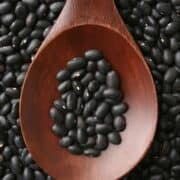


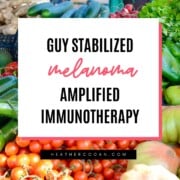


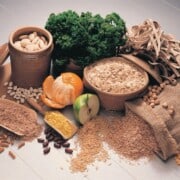





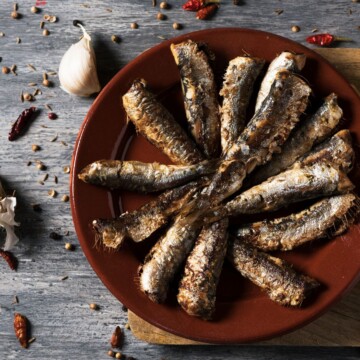


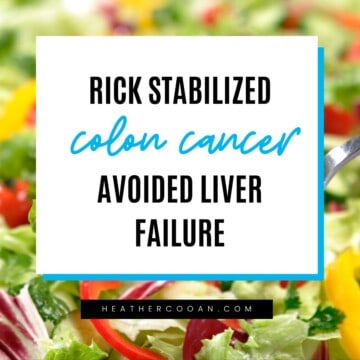

Tell Me What You Think